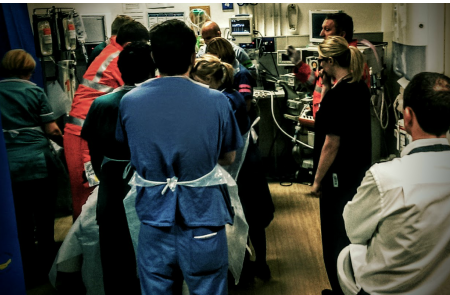What is Major Trauma?Patients with major trauma are those with serious, multiple injuries that require 24/7 emergency access to a wide range of clinical services and expertise. For example, doctors may be required to attend to a patient with head and neck injuries, chest, pelvis and other bone fractures. Major traumas can happen as a result of many mechanisms such as:
• Road Traffic Collisions (RTC) • Industrial accidents • Falls • Leisure activities Access to the right service at the right time is crucial for survival and for making sure recovery is as quick and complete as possible. |
What is a Major trauma centre? |
A Major Trauma Centre is able to treat people with the most serious injuries. It has access to the
specialist services you are likely to require to manage your injuries and recovery. Once patients arrive at the major trauma centre, they will undergo a focused assessment by a specialist trauma team trained to deal with these types of injuries. The Major Trauma Centre is an adults and children's service. The management of specific injuries differs for children, but the focused response from a specially trained trauma team will essentially be the same. In life-threatening situations, the doctors and nurses from the trauma team will do what is required to save a person's life. If the patient is unable to give consent because they are incapacitated, treatment will still be carried out. In these cases, the reasons why treatment was necessary will be fully explained once the patient has recovered. |
What are trauma Units? |
A Trauma Unit is a hospital that provides immediate resuscitation for some major trauma patients before
transferring them to the Major Trauma Centre if needed. They may also be able to provide some specialist care. Trauma Units will also ensure that the patient returns from the Major Trauma Centre when it is appropriate and accesses community services for rehabilitation local to them and their family. What is a Trauma Unit expected to do? All Trauma Units are expected to provide the same high level of trauma care. This includes:
Within the West Yorkshire Major Trauma Network there are five Trauma Units, more information can be found under the About Us section. |
